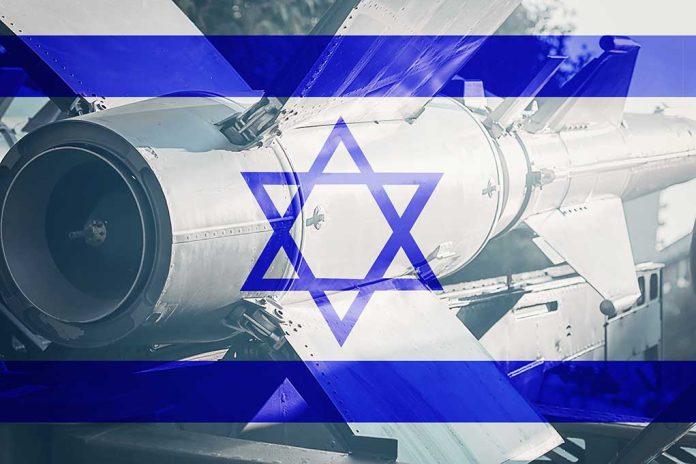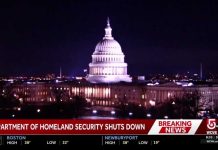
China pledges unwavering support for Iran as Israel’s Operation Rising Lion destroys critical nuclear facilities and kills top Revolutionary Guard commanders, threatening to ignite a wider regional conflict with global implications.
Key Takeaways
- China has expressed “deep concern” over Israel’s strikes on Iran’s nuclear facilities and military sites, firmly opposing any violation of Iranian sovereignty.
- Israel’s “Operation Rising Lion” targeted Iran’s Natanz nuclear facility and killed several high-ranking officials, including IRGC commander Hossein Salami.
- The China-Iran strategic partnership, formalized in a 25-year cooperation agreement signed in 2021, continues to strengthen despite international pressure and sanctions.
- China remains Iran’s largest oil buyer despite U.S. sanctions, using covert channels and barter deals to maintain trade relations.
- President Trump has urged Iran to negotiate a nuclear deal with the United States, warning that Israel’s attacks could escalate further without diplomatic intervention.
China’s Diplomatic Response to Israeli Strikes
Following Israel’s targeted strikes on Iran’s nuclear and military installations, the Chinese Foreign Ministry issued strong statements condemning the operation. Beijing’s swift response underscores its growing strategic alliance with Tehran amid escalating Middle East tensions. Chinese Foreign Ministry spokesperson Lin Jian made China’s position clear in no uncertain terms, emphasizing the country’s concerns about regional stability and Iran’s territorial integrity.
“China is highly concerned about Israel’s attacks on Iran and deeply worried about the potential serious consequences of these actions,” said Lin Jian, spokesperson for China’s Foreign Ministry.
The spokesperson further stated that China “opposes any violation of Iran’s sovereignty, security, and territorial integrity, and opposes actions that escalate tensions and expand the conflict.” While offering diplomatic support, China has also instructed its citizens in Iran to remain vigilant, advising them to “closely monitor developments, remain calm, stay vigilant, and be fully prepared for potential attacks involving missiles, rockets, or drones.”
Operation Rising Lion and Iran’s Response
Israel’s military operation, code-named “Operation Rising Lion,” delivered a devastating blow to Iran’s nuclear program and military leadership. The precision strikes targeted the Natanz nuclear facility, a cornerstone of Iran’s atomic ambitions, along with ballistic missile sites and other military installations. Among the casualties were several high-ranking officials, including Revolutionary Guard commander Hossein Salami, marking a significant escalation in the ongoing shadow war between the two nations.
Iran’s response was immediate but measured. Tehran launched over 100 drones toward Israel, most of which were intercepted by Israeli air defenses. Iran’s newly elected President Masoud Pezeshkian vowed to “strongly take action” against Israel, signaling that more significant retaliation may be forthcoming. The Israeli military has closed airspace and mobilized additional troops to secure its borders in anticipation of further Iranian strikes.
The China-Iran Strategic Partnership
China’s support for Iran extends far beyond diplomatic statements. In 2021, the two nations signed a comprehensive 25-year cooperation agreement that encompasses trade, energy, infrastructure, and security partnerships. This deal, estimated to be worth hundreds of billions of dollars, provides Iran with a critical economic lifeline amidst crippling Western sanctions while giving China access to discounted oil and a strategic foothold in the Middle East.
“China is reportedly ‘deeply concerned’ after its close ally Iran suffered the loss of key terrorist leaders following Israel’s massive strikes on Iran’s nuclear facilities,” reported Townhall.
Despite international pressure, China remains Iran’s largest oil buyer, using covert channels and barter deals to circumvent U.S. sanctions. Intelligence reports suggest that China may also be providing Iran with missile components, drone technology, and cybersecurity capabilities, though both countries deny these allegations. Chinese leader Xi Jinping recently met with Iranian President Pezeshkian, reaffirming China’s support for Iran’s sovereignty and development paths.
Global Implications and Trump’s Diplomatic Approach
President Trump has urged Iran to negotiate directly with the United States on a nuclear deal, warning that Israel’s military actions could intensify without diplomatic intervention. The President’s approach emphasizes direct engagement over military confrontation, aligning with his broader foreign policy vision of peace through strength. Trump’s administration has consistently advocated for maximum pressure on Iran while keeping diplomatic channels open.
The China-Iran alliance represents a significant challenge to American interests in the Middle East and beyond. By providing economic, diplomatic, and potentially military support to Tehran, Beijing is effectively undermining the sanctions regime designed to curb Iran’s nuclear ambitions and support for terrorism. This partnership forms part of China’s broader strategy to expand its influence across Eurasia while challenging U.S. global leadership.
As Israel continues its operations against Iran’s nuclear program, the risk of wider regional conflict grows. China’s unequivocal support for Iran raises the stakes in this dangerous standoff, potentially drawing other major powers into the conflict. The coming days will be crucial in determining whether diplomacy can prevail over escalation in this volatile region where global powers increasingly find themselves in direct competition.




